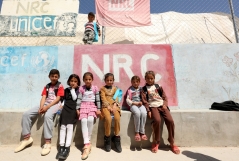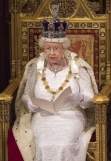More than 45 million people are trapped in slavery around the world according to the latest Global Slavery Index.
The report offers the most accurate insight into global slavery so far and highlights a dramatic increase in the number of people in servitude from previous estimates. Authored by the Australian-based human rights group Walk Free Foundation, the study found a 28 per cent increase in the number of slaves from a previous estimate of 35.8 million in 2014 to 45.8 million.
North Korea was found to have the worst rates of slavery with one in every 20 in servitude, or more than four per cent of its 25 million population. The report said there was "pervasive evidence that government-sanctioned forced labour occurs in an extensive system of prison labour camps". It added: "North Korean women are subjected to forced marriage and commercial sexual exploitation in China and other neighbouring states."
Out of the 45.8 million slaves, 58 per cent occurs in just five countries. India was found to have the highest overall number of slaves with 18.35 million followed by China with 3.39 million and Pakistan with 2.13 million. However the report acknowledged India had made "significant progress in introducing measures to tackle the problem".
The report said: "It [India] has criminalised trafficking, slavery, forced labour, child prostitution and forced marriage. The Indian government is currently tightening legislation against human trafficking, with tougher punishment for repeat offenders. It will offer victims protection and recovery support."
The survey said it represented 44 per cent of the population through 42,000 interviews across 23 countries. As well as measuring the scale of slavery, the Walk Free Foundation also assessed government's responses to slavery and said "significant progress" had been made since the 2014 report.
The UK and the US were named among the countries taking the strongest action against slavery. Andrew Forrest, chairman and founder of the Walk Free Foundation, called on other governments to follow the UK's example and introduce legislation at least as strong as Britain's Modern Slavery Act. He added that organisations must be held to account for slavery in their supply chains.
"Leaders of the world's major economies must bring the power of business to this issue, by requiring a focus on supply chain transparency," said Forrest.
"I believe in the critical role of leaders in government, business and civil society," he added. "Through our responsible use of power, strength of conviction, determination and collective will, we all can lead the world to end slavery."
However the data showed that 11,700 people are still estimated to be enslaved in the UK. Louise Gleich, a human trafficking expert for the charity CARE, said the figures were "shocking" and should serve as a "serious wake up call to people everywhere".
She said: "Modern slavery exists and it is rife."















